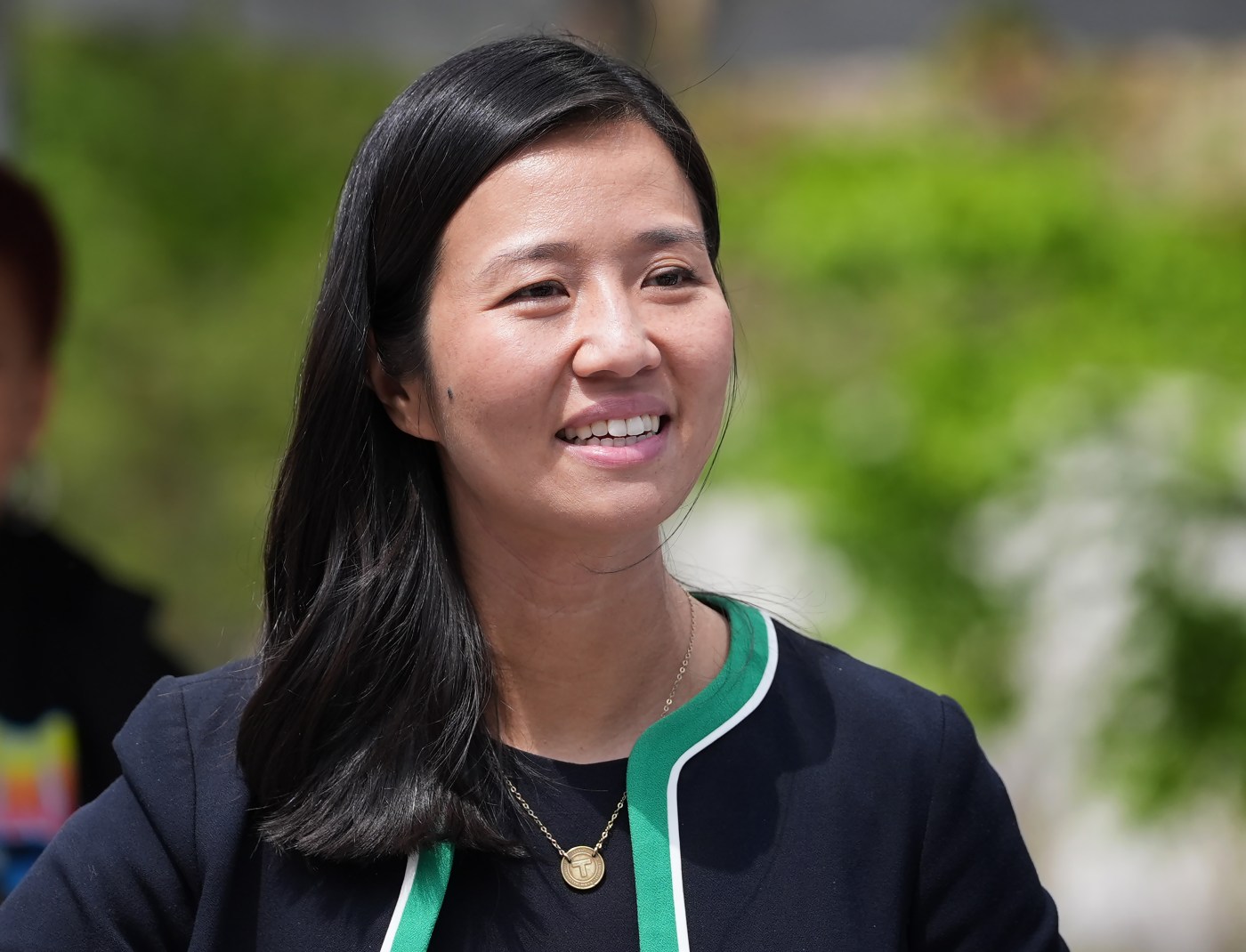
Report: Boston Mayor Wu’s plan to increase commercial tax rates is bad for business
A global tax expert concluded that the mayor’s plan to tax Boston businesses beyond the state limit would not protect residential property owners as intended, and would hurt the economic health of the entire city and state.
Daniel Swift, a principal at the global tax consulting firm Ryan, sent a letter this week that petitions the Boston City Council to vote down the mayor’s plan to temporarily increase commercial tax rates, and instead provide tax mitigation to a business sector struggling with declining property values and vacant office space.
The letter was addressed to Councilors Gabriela Coletta and Benjamin Weber, chair and vice chair of the body’s Government Operations committee, which will hold a second hearing on Mayor Michelle Wu’s home rule petition on May 30.
“While the intention to protect residential taxpayers is commendable, the reality is this proposal will cause harm to both the residential and commercial property owners,” Swift wrote. “Commercial property is already sharply decreasing in market value, and increasing its tax to subsidize the residential class is not the solution.
“Focus instead should be on investing in the future of commercial properties and encouraging its revival,” his letter states, adding that providing tax relief to that sector would protect the city’s economy, vitality and future competitiveness.
The letter was accompanied by a 13-page analysis from the Ryan tax consulting firm, which asserts that homeowners would not experience the drastic increase in property taxes that Wu has said her plan seeks to avoid next year, by shifting more of the tax burden onto commercial owners for the next four years.
The firm contends, however, that if the city were allowed to shift beyond the state limit, from 175% to 200%, as proposed by the mayor for fiscal year 2025, the change would have a long-lasting harm on the commercial sector, by increasing its already disproportionate share of property taxes and further depressing values.
Property taxes make up more than 70% of annual city budget revenue, about a third of which is paid by the commercial sector. Commercial properties make up roughly a third of total assessed value in Boston, but paid approximately 58% of the total tax levy in Boston, Swift wrote.
The mayor’s plan could spike commercial tax rates by 17%, which may leave that sector paying “twice its fair share in taxes,” the firm’s analysis found.
“The proposal alone will increase the commercial tax rate in Boston by 14%, but the actual rate increase is likely to be far greater due to value decline,” Swift wrote. “The increased rate will further depress commercial values and raise the risk profile to potential investors and make Boston a less attractive place to maintain and relocate small businesses, restaurants, retail shops and offices.”
Related Articles
Boston mayor, police seek to curb summer spike in gun violence
Boston Mayor Wu’s Italy trip sparks latest battle in North End outdoor dining war
Bill Bratton calls criticism of ShotSpotter technology ‘foolish’
Boston Police records debunk ACLU, critics’ claim that piñata activated ShotSpotter
Warren, Markey, Pressley follow Boston Police review by pressing for federal probe of ShotSpotter
Ultimately, his firm concludes that it’s “difficult to make sense” of a plan that seeks to increase taxes on a class of property that is decreasing in market value, particularly in a city that already has the second-highest level of disproportionately between commercial and residential taxpayers in the country.
“This bill would increase the already exorbitant tax burden on commercial owners who are desperately attempting to hold onto properties through financial stress and losses caused by record-high vacancies and increased interest rates,” the firm’s report states.
“Boston should be reviewing ways to revive commercial properties through tax mitigation, not saddling them with additional disproportionate tax burden to reduce tax costs for a thriving class of property whose owners are continuing to increase their wealth.”
Swift plans to offer similar testimony at the May 30 Council hearing, and will take part in a Wednesday panel hosted by NAIOP Massachusetts, where alternative solutions to the mayor’s proposed legislation will be discussed.
The panel will also feature Jim Rooney, president and CEO of the Greater Boston Chamber of Commerce and Marty Walz, interim president of the Boston Municipal Research Bureau, both of whom oppose the mayor’s petition, which needs approval from both the City Council and state lawmakers.
A new report filed with the City Council recommends the body vote down Mayor Michelle Wu’s proposal to increase taxes on commercial properties in the city. (Chris Christo/Boston Herald)


